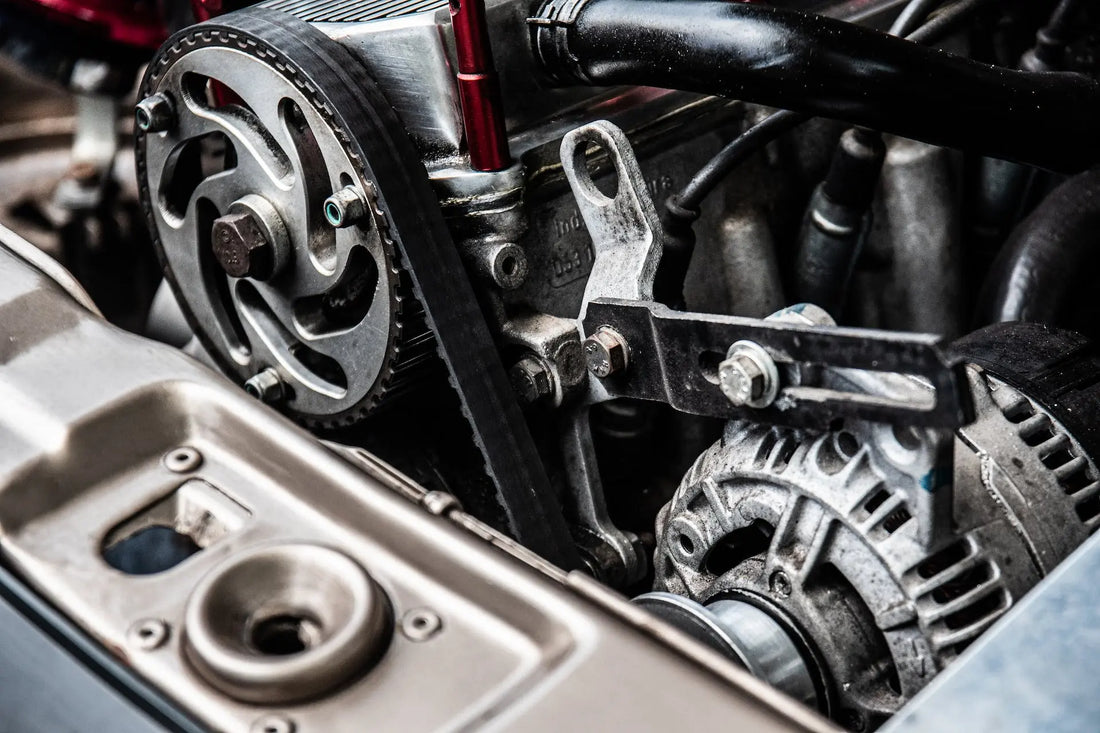
How Do You Store Petrol and Diesel Fuels?
Share
Understanding the importance of fuel storage
Correct fuel storage is often overlooked. It's not just about ensuring that you have a ready supply of fuel for your vehicle or machinery, it involves maintaining the quality of the fuel and ensuring safety.
Preserving fuel integrity
Petrol and diesel are complex mixtures that are will degrade over time, and this degradation can lead to a host of fuel system and wider engine issues.
For petrol, the formation of gums and varnish due to oxidation can clog fuel injectors and carburetors. Diesel faces similar issues but with added concerns like bacteria growth in the presence of water, which leads to filter clogging and corrosion of engine components.
The integrity of the fuel you put into an engine will significantly effect the performance and lifespan of the components.
Degraded fuel can cause engines to run less efficiently, increase emissions, and even lead to engine failure. This is not just a concern for vehicles but also for any equipment relying on stored fuel, such as generators or gardening tools.
Safety considerations
Both petrol and diesel are serious fire hazards if not stored correctly.
Proper storage involves using the right containers and storing them in a suitable environment. It also means being aware of how environmental factors like temperature and humidity can affect fuel stability.
Plus, safe fuel storage will also prevent spillages, which can be a significant environmental pollutant, harming local ecosystems and potentially contaminating water sources.
The Science Behind Fuel Degradation
The way that fuel degrades is a complex process that affects both petrol and diesel but in slightly different ways. Understanding how or why fuel degrades is important if you are to successfully avoid it happening.
How does petrol degrade
The stability of petrol is crucial to achieving good engine performance. Over time petrol will experience oxidation, caused by exposure to oxygen in the atmosphere around it. The oxidation process results in new compounds being formed, and this creates a gum and varnish like texture.
These can easily blog up fuel systems and reduce engine efficiency.
Another aspect to petrol is that certain parts of it can evaporate, which is made more likely when poorly stored. This significantly reduces the quality of the fuel.
How does diesel degrade
Diesel is far more prone to water contamination than petrol, which is caused by condensation in tanks or exposure to the environment, Water provides a welcome habitat for bacteria that feed on the fuel. The result is an acidic by-product that corrodes both engines and storage tanks.
In addition, over time the heavier components of diesel can settle on the bottle of a fuel tank which leads to sediment formation. This sludge will likely clog fuel filters and reduce the efficiency of the whole fuel system.
Temperature and light effects
Both petrol and diesel are sensitive to temperature and light. High temperatures can accelerate the oxidation process in petrol and promote bacteria growth in diesel.
At the same time, exposure to sunlight can increase the temperature of the stored fuel and contribute to degradation.
How to store petrol
The choice of container is crucial when storing petrol. A petrol container should be made of high quality plastic or metal, which has been designed to prevent leaks and significantly reduce the risk of evaporation. Containers should be airtight in order to prevent oxygen getting in and triggering oxidation (described above).
It should be stored in a well ventilated location which is away from direct sunlight and unusually high or low temperatures. Exposure to heat is especially bad as this will increase evaporation and oxidation.
Once stored, ensure you rotate the storage tanks to use the oldest petrol first and regularly inspect the tanks to check for any signs of leakage.
How to store diesel
Diesel should be stored in containers that are made or materials that are less reactive with diesel. These are designed to limit exposure to direct light and air to reduce the risk of oxidation and bacteria growth.
As described earlier, exposure to moisture is a significant risk to diesel. It's vital to keep diesel dry and in a place where humidity and condensation can be controlled.
While diesel is less volatile that petrol, it's still sensitive to extreme cold and warm temperatures. Both will accelerate the degrading process.
Where does Sta-Bil come into fuel storage?
Sta-Bil products are renowned for their quality and effectiveness of keeping stored fuel fresh. However, to achieve optimal performance it's crucial you follow the steps described above.
Both e10 fuel stabiliser and diesel stabiliser should be added to stored fuel to prevent the chemical reactions that lead to fuel degradation.
Once added, your treated fuel should be stored in a cool, dry place that is away from direct sunlight.
Fuel Storage - Frequently Asked Questions
How long can you store petrol and diesel?
With proper fuel additives, petrol can be stored for 6-12 months, while diesel can last for up to a year.
Are Sta-Bil products necessary for short-term storage?
While they are more crucial for long-term storage, using them for short-term storage can still offer benefits in maintaining fuel quality and engine health.
Can petrol and diesel be stored together in the same container?
They have different properties and storage requirements, and mixing them can be dangerous and will degrade the quality of both fuels.
How do you know if stored fuel has gone bad?
You can often tell if fuel has degraded by changes in its appearance, smell, or consistency. For petrol, a darker colour or a sour smell can indicate degradation.
For diesel, the presence of visible particles or a cloudy appearance can suggest contamination.
What is the best way to dispose of old or contaminated fuel?
Disposing of old or contaminated fuel should be done responsibly to avoid environmental damage. Contact your local council to find your nearest waste facility.
Is it safe to store fuel in a garage or shed?
Storing fuel in a garage or shed can be safe as long as it's done correctly. Ensure the area is well-ventilated, away from any source of heat or flame, and out of reach of children and pets. Always use containers designed specifically for fuel storage.
